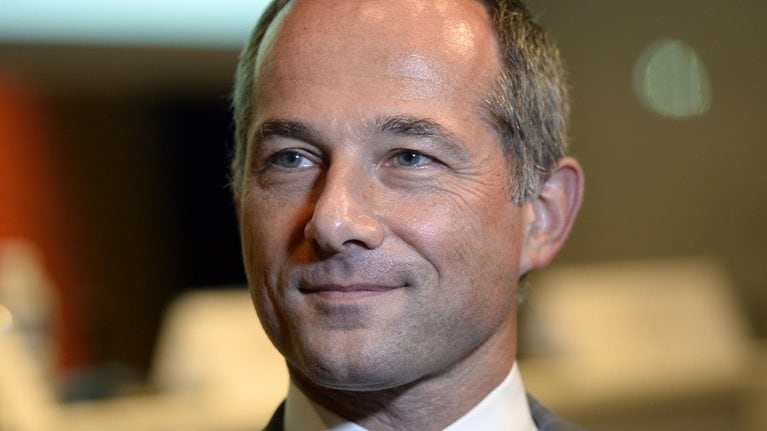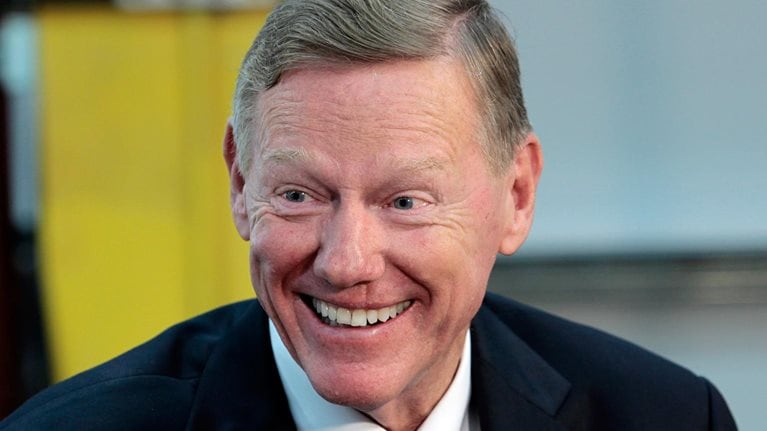When Canada native Moya Greene arrived in London in July 2010 to take up her duties as chief executive of Royal Mail, Britain’s centuries-old state-owned postal service was mired in trouble: it faced a rapid decline in revenue from letters, the service’s historic mainstay; a huge pension deficit; union opposition to government plans for privatization; and an unworkable regulatory framework that discouraged the business from introducing new products and prevented it from setting its own prices.
It was a daunting list of challenges for any executive, let alone the first woman and first non-Briton to head Royal Mail since Henry VIII established a “master of posts” in 1516. But Greene, a veteran Canadian civil servant, came well prepared. In her previous job as head of Canada Post, she increased profits and streamlined operations ahead of talk of privatization. In an early public role as an assistant deputy minister for transport, she oversaw the privatization of Canada Railway and the deregulation of Canada’s airline industry. She could also draw on experience gained in high-profile management roles at three of Canada’s largest private companies, Toronto-Dominion Bank, Canadian Imperial Bank of Commerce, and Bombardier, the aircraft manufacturer.
In her two years at Royal Mail, Greene has succeeded in reversing declines in revenues and profit and has built goodwill with regulators and the postal unions—even as she leads a strategic overhaul of the service’s business model. In April 2012, she spoke to Dominic Barton, McKinsey’s global managing director, and Robin Nuttall, a partner in McKinsey’s London office, about how she deals with the challenges of her role.
McKinsey: You’ve held key leadership roles in both the public and private sector. Which is harder?
Moya Greene: A decade ago, I’d have said that it was harder to be a public official than an executive in the private sector. But the tables have turned. It’s tough these days to be the CEO of any business—even a very successful one with a balanced view of the corporation’s position in society.
McKinsey: How does your public sector experience inform your perspective as a CEO?
Moya Greene: My public-sector experience helped me understand how easily sound policies can be derailed by small, symbolic things. It may not matter that the policy change you are advocating is the product of fantastic analytics or years of brilliant stakeholder management; the tiniest little spark can become a flash fire—something that takes hold and transforms perceptions. If you work in the public sector, you learn the value of developing antennae for popular perceptions and keeping them finely tuned.
McKinsey: You work hard at internal communications, but Royal Mail is one of Britain’s largest employers. How do you connect with all 160,000 people on your payroll? And why is that so important to you?
Moya Greene: I spend time in the field communicating with our own people trying to help them understand how good we are at what we do. If you count postal workers and their families, that’s nearly 500,000 people. They are the most powerful ambassadors for our brand, and they need to be given accurate information about what we’re doing. That’s not always easy because there is so much negativism in the media. I see good internal communications as a way to punch through that and get our message out—to tell our people, “Here’s what’s really happening. Stand up and be proud.”
McKinsey: Royal Mail has a unique mandate. It’s publicly owned but operates like a company, and legislation passed last year clears the way for it to be privatized. How do you strike the right balance between profit and public mission?
Moya Greene: It is a glorious mission. We were established by Henry VIII. We’re the only company in the land allowed to use Her Majesty’s livery on everything. We go to 29 million addresses six days a week. But even if we weren’t that kind of company, I think we would still take a broad, public-minded view of our position in society. The salaries we pay support every town, village and city in this country. We offer stable jobs with good benefits and spend billions of pounds a year on everything from fuel and electricity to boots for our postmen and women. The roster of companies supported by our purchases is huge.
I think most CEOs today understand they have look at more than just the bottom line. I don’t see any of my peers these days who take such a narrow view, because you can’t afford to. Of course, you can’t afford to take your eyes off the bottom line, either. I certainly can’t; when I came here, we were running out of cash. I was grappling with decisions that would determine whether or not we could stay in business. But you cannot position your company in the broader social and economic fabric of the nation if all you do is look at the financial dimensions of performance.
McKinsey: How do you strike a balance between the many demands on your time, particularly when driving change?
Moya Greene: I try to think about my agenda as divided into big blocks of time that I actively monitor. I recently did a diary analysis, which showed I spend roughly 15 percent of my time managing and understanding our employees. Another 25 percent of my time last year was devoted to changing the fundamentals of the company, notably its unbelievably wrongheaded regulatory model (which stopped us changing a product, a product spec, or a product price). Without wholesale changes to that model, I felt there was no hope for the company. Next, I spent 15 percent of my time seeking to change the conversation inside Royal Mail so that we put the customer much closer to the heart of what we talk about and do. How do we tap into customer sentiments and improve satisfaction? A further 10 percent was taken up with what I call strategic realignment, helping people understand that we're going to make our money in future in parcels and packets, in media, and by selling our data assets in a more commercial way. That left 35 percent for everything else: organization, recruitment, managing the board, and crisis management.
McKinsey: Is it possible to take on the responsibility of leading such a large organization on which so many people depend and still have some semblance of a personal life? Where do you find the stamina you need to do the job?
Moya Greene: Well, the first criterion is: do you love it? It’s a seven-day-a-week job. I think that’s true for anyone in these roles. If you don’t love the company and the people—really love them—you can’t do a job like this.
I’m pretty energetic. I start at five in the morning. I don’t even think about it anymore; the alarm goes off and I’m up. I go for a 30-minute run. I’m a big walker—that’s my favorite thing. I try to get a good walk every weekend. I go on walking vacations.
I’ve usually got three or four books on the go. I’ve given up on novels. I can’t get through them no matter how good they are; there’s no way I’ll finish before there’s some kind of interruption. So I read poetry now: the collected works of Ted Hughes, Emily Dickinson. I’m working my way through Philip Larkin. You can take a Larkin poem and read it on the bus in 15 minutes. The good ones stay with you and will come back to you. That’s what I like about poetry: you get a little shot of mental protein without a lot of time.
McKinsey: Are there things employers can do to encourage women in leadership roles? Should they offer more flexibility for women in leadership roles?
Moya Greene: You just cannot expect to be the chief financial officer at a big company or the head of the legal department if you’re working on “flexi” time.
I had childcare from the time my kid was three months old, and she went to Harvard, and now she's at McGill. My daughter has had a good role model, somebody who was keenly interested in her education and making sure she got a good one and set the bar high.
McKinsey: So how do you do it?
Moya Greene: You have to get organized!


